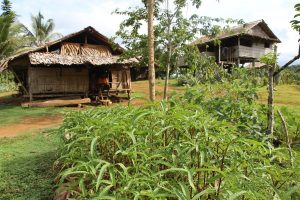Last year’s decision by the government of the Solomon Islands to switch its diplomatic recognition away from Taiwan to China has not been universally accepted by the country as a whole. The province of Malaita — the country’s most populous, but not home to its capital city, Honiara — has fervently resisted the move. Last October, the province’s premier, Daniel Suidani, issued a declaration (the Auki Communiqué) that raised concerns about the lack of transparency surrounding the process to switch diplomatic recognition, and also expressed a suspicion toward China’s intentions in the Solomon Islands. Due to his staunch opposition to the diplomatic switch, Suidani has proposed that Malaita hold a referendum to gain independence from the Solomon Islands.
Suidani informed The Guardian last week that a referendum could potentially be held in September. That timeline seems ambitious, especially given the island’s mountainous terrain with difficult to access villages, and the fact that large numbers of Malaitans actually live on the island of Guadalcanal in and around Honiara. The proposition is opposed by the central government, which issued a statement declaring that any referendum conducted by the province would be illegal. The situation seems to set up a battle of wills between Suidani and Prime Minister Manesseh Sogavare.
However, the dispute is not solely over the diplomatic recognition of China. That issue falls onto pre-existing fault lines in the country, including those that drove civil unrest from 1998 to 2003. And this is far from the first time that Malaita has attempted to pursue its own independence. As Dr. Anna Powles from Massey University in New Zealand told The Diplomat, “Malaita has long resisted ‘the center,’ whether it be the colonial powers when Malaita was part of the British Solomon Islands protectorate, through to the emergence of the Maasina Ruru emancipation movement which formed during World War II by Malaitans who worked in the Solomon Islands Labor Corp.” The Labor Corp were Solomon Island troops who assisted the Allies against the Japanese.
Powles added that “[t]he geopolitical backdrop of the current independence bid has created further divisions, but Malaitan self-determination is about development and frustrations with the central government – it isn’t an ideological battle between Beijing and Taipei. Beijing and Taipei are pawns in the long-standing dispute between Malaita and the state. However they are two potentially destabilizing pawns.”
This presents a unique set of circumstances under which the gamesmanship between Beijing and Taipei for influence in the Pacific is being harnessed by local actors for their own political purposes, rooted in their own historical grievances. Given the discrepancies of power, however, this seems to be a dangerous game. China’s increasing economic interests in the country are being built on contentious practices like logging, which may furnish the country’s export revenue and satisfy elite and state actors, but harm local communities.
The situation also has the potential to create insecure conditions for local Chinese communities who may get caught up in people’s frustrations, as occurred in 2006 when riots targeted Honiara’s Chinatown. The riots were born from a sense of corruption in the country due to the “checkbook diplomacy” of Beijing and Taipei as they competed for influence. Highlighting how these tensions may be resurfacing, Powles told The Diplomat, “Last week, Malaita For Democracy, which is pro-independence, pro-Taiwan and pro-Suidani, called for anti-China protests in Auki and for all Chinese-run businesses to leave the province within 24 hours.”
If tensions continue to rise as Suidani makes a push for independence, this may also create a major test for the Royal Solomon Island Police Force (RSIPF). The RSIPF underwent considerable reform during the Regional Assistance Mission to Solomon Islands (RAMSI) that withdrew from the country in 2014. The hope would be that the RSIPF doesn’t need to exercise its new capabilities.
Yet Powles says that the bigger issue is whether the Solomon Islands government has “been adequately equipped through the RAMSI years to address grievances over unequal development between Malaita and the rest of the Solomon Islands.” This is the real issue at play; the disconnect between decision-making by the central government and the provinces, and the outcomes. There is a sense that the benefits from large projects that stem from Chinese demand or investment are not being equally distributed, and that the processes that decide on these projects are not transparent. This is creating a strong public sense of suspicion toward the central government — and toward China as well.
While the Solomon Islands government should understand the responsibility it has to maintain trust in an ethnically diverse and regionally disparate country, it is also the responsibility of larger powers to understand the influence of their actions on smaller powers. This is especially true in regions with a recent history of civil unrest that also have significant development needs. Both Beijing and Taipei should keep this in mind as they vie for influence.

































